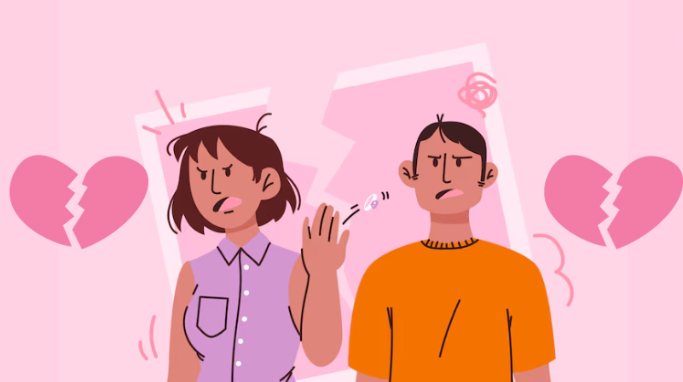How Do Love Hormones Affect Your Body?

© freepik
Have you ever wondered why falling in love feels like a whirlwind of emotions, or why heartbreak can physically hurt? The answer may lie in the powerful love hormones that are released in our bodies when we experience love and heartbreak. The idea of “love hormones” may sound like something out of a romantic novel, but they are actually real chemical substances that play a significant role in our emotional and physical well-being. Here is why they matter.
What Are Love Hormones?
Love hormones refer to a group of chemicals in the brain and body that play a role in creating feelings of love, attachment, and bonding between individuals. The primary love hormones include:
- Oxytocin. Often called the “love hormone” or “cuddle hormone,” oxytocin is released during physical touch, such as hugging, kissing, or sexual activity. It’s also involved in childbirth and breastfeeding, promoting bonding between mothers and their infants.
- Vasopressin. This hormone is involved in social bonding and attachment. It helps regulate behaviors such as pair bonding, territorial marking, and aggression. Vasopressin is particularly associated with long-term commitment in monogamous relationships.
- Dopamine. Dopamine is a neurotransmitter associated with pleasure, reward, and motivation. It plays a role in the brain’s reward system and is released during activities such as eating, sex, and engaging in enjoyable experiences. In the context of love, dopamine levels increase during the early stages of romantic attraction. This contributes to feelings of excitement and pleasure.
- Serotonin. Serotonin is a neurotransmitter that helps regulate mood, social behavior, and appetite. It’s involved in the regulation of emotions, including romantic love. Imbalances in serotonin levels have been linked to mood disorders such as depression and anxiety, which can affect relationships.
How Do We Love?
Contrary to popular belief, love’s benefits primarily stem from the brain, not the heart. It orchestrates the release of hormones during attraction, affection, and attachment. Love is crucial for health, well-being, and reproduction, hardwired into our biology. Knowing how the brain processes signals and the consequences of hormonal imbalances aids in navigating relationships, from friendship to heartbreak.

How Are Love Hormones Connected?
The mind and body communicate through neurotransmitters and hormones, which are part of the endocrine system. Key brain structures, including the hypothalamus, hippocampus, amygdala, thalamus, basal ganglia, and cingulate gyrus, form the limbic system, crucial for memory, smell processing, and emotions like attraction and affection.
Hormones enable us to feel compelled to connect after a glance, alleviate fears of vulnerability when meeting someone new, and foster a sense of deep connection with a partner over time.
Benefits of Love
Love-related hormones, when released, offer various mental and physical health benefits. Activation of the brain’s reward centers triggers the release of hormones, neurochemicals, and natural opioids. This helps foster feelings of joy while aiding in healing and pain management.

Love brings numerous benefits, including reduced stress, improved sleep, enhanced immune health, pain reduction, decreased depression, better problem-solving abilities, improved cognitive function, and potentially longer life. Secure relationships, whether romantic or not, induce biological states that foster relaxation, growth, and restoration, promoting overall health across the lifespan.
How Does Love Make You Blind?
Various stages of a relationship offer different benefits, with certain hormones more prevalent during specific phases. During the initial stages of falling in love, noradrenaline is released more frequently. This reflects the brain’s cautious approach when faced with uncertainties in a new relationship.
Early in a relationship, heightened adrenaline causes sensations like butterflies in the stomach and a faster heart rate. There’s also reduced judgment, leading to overlooking faults. As relationships progress, dopamine-driven passion gives way to oxytocin and vasopressin, sustaining long-term bonds by fostering feelings of safety, security, devotion, and protection.
What Happens After a Breakup?
The emotional responses to losing a companion can outweigh the benefits of love hormones. Breakups entail losing feel-good hormones like dopamine and oxytocin, while stress-related hormones like cortisol and norepinephrine increase, leading to emotional challenges.
A breakup deprives us of accustomed neurotransmitters, akin to going cold turkey for an addict. It triggers a stress response, akin to physical pain, as the brain longs for lost positive feelings associated with the beloved, resembling withdrawal symptoms. This experience reflects heartbreak or unrequited love.

Feelings of loss or longing after a breakup can lead to symptoms like appetite changes, weight fluctuations, sleep disturbances, anxiety, or depression. The impact intensifies if a partner passes away, potentially leading to fatal consequences. Oxytocin’s role in heart protection highlights the cardiovascular response when its supply abruptly ends post-loss. Stress hormones released during grief can elevate blood pressure, increase heart rate, and cause breathing difficulties for many individuals.
What Do Studies Have to Say?
For individuals with underlying heart conditions, the physical symptoms of grief can escalate, potentially leading to a heart attack. Broken heart syndrome, a rare medical condition, may come into play. A study from the 1960s involving widowers, revealed a 40% higher risk of mortality within the first six months post-loss compared to married individuals of similar age.
The adverse effects of separation from a loved one, whether through breakup or death, diminish over time as new relationships form and strengthen. While the pain of loss may persist, new bonds can aid in emotional healing. Self-care is crucial for healing. It is suggested that engaging in enjoyable activities to reduce stress hormones and boost love hormones after the initial difficult period.
What Can You Do to Heal?
Expanding your comfort zone and nurturing existing relationships can foster meaningful connections. If your current relationship feels lacking in love and positive hormones, invest more time with your partner, focus on their strengths and shared happy memories, or engage in physical intimacy to stimulate the release of these chemicals and strengthen your bond.

Even without a romantic relationship, love-related hormones can be stimulated by spending time with family, and friends, hugging, enjoying nature, or interacting with pets. Embracing solitude is not advisable. Humans, like other mammals, are not evolved for it. Love is a biological necessity, not optional.
How do you deal with your love hormones?
You might also want to read: How to Increase Dopamine Levels Naturally?


